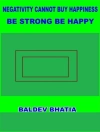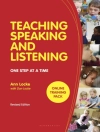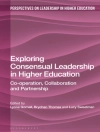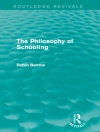“I could easily say, what a timely book, but the truth is that Kohlberg is for the ages, which means any time is worthwhile to revisit his work. So, in that sense, let us ask, what aspects of his work in Moral Development and Moral Education are timely today? One answer can be found in the Kohlberg Lounge on the sixth floor of Larsen Hall, which I have the privilege to visit every day. Placed there in 1987, a plaque in his honor states: In memory of Lawrence Kohlberg: In this room where ideas are born through discussion and tested through debate Let us listen and speak with the same respect that he gave to all In 2015, the emphasis on discussion and debate has reached beyond moral development to all aspects of pedagogy, from literacy to history education and beyond. And, in an era of fast and slow thinking, this book reminds us that ethical reflection, self-awareness, and a social conscience are the three malleable developmental skills that allow us all to be truly human. Kohlberg then, Kohlberg now, Kohlberg forever.” – Robert L. Selman, Harvard University (Roy Edward Larsen Professor of Education and Human Development, Professor of Psychology in the Department of Psychiatry) “This book about one of the giants of psychology is very timely. There is a whole generation of students and scholars that is growing up with a knowledge about moral development without learning about the roots of the field. This is not a matter of nostalgia or ‘attributional justice, ’ but one of missing out on a fountain of knowledge and insight that has not been surpassed in its depth and breadth. This book should become required reading for students in the social sciences that should begin to ask the questions that would require their teachers to ‘read up.’” – Gil Noam, Harvard Medical School (Founder and Director of the Program in Education, Afterschool & Resiliency (PEAR)) “Kohlberg’s theory of moral developmental might be more relevant today than ever, givenincreasing worries about the fragmentation and declining solidarity in modern Western society. But does the theory hold up in light of old criticisms and new questions and methods? The chapters, by leading scholars in the field of moral development, introduce new generations of moral psychologists, philosophers, and educators to Kohlberg’s work, by addressing strengths and weaknesses and suggesting ways to move forward. A must read for anyone interested in moral education.” – Jan Boom, Utrecht University (Chair of the Kuhmerker Dissertation Award Committee)
Innehållsförteckning
Foreword; Introduction by the Editors; Evolutionary Paradigm Shifting in Moral Psychology in Kohlberg’s Penumbra; Lawrence Kohlberg’s Legacy: Radicalizing the Educational Mainstream; Just Community Sources and Transformations: A Conceptual Archeology of Kohlberg’s Approach to Moral and Democratic Schooling; Reconstructing Moral Development—Kohlberg Meets Oevermann; Kohlberg’s Stage 41/2 Revisited—Or: From Halves to Wholes in the Theory of Moral Stages; Lawrence Kohlberg in Finnish Social Psychology and Moral Education; Kohlberg’s Unnoticed Dilemma—The External Assessment of Internal Moral Competence?; Moral Judgment Competence in Pragmatic Context: Kohlberg, Dewey, Polanyi; Moral Change is not a Birthday Journey: The Stop-and-change Model of Moral Education; Lawrence Kohlberg: The Vocation of a Moral Educator; The Understanding of Human Rights and Rule of Law from the Perspective of Kohlberg’s Theory.












